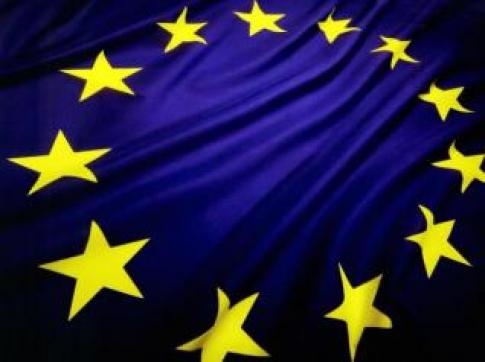EU Budget deal struck with £16billion sweeteners

The full extent of £16billion in “sweeteners” paid to European Union member states to secure their support for last month’s decision to make a historic cut in the union’s budget can be revealed for the first time.
By Patrick Hennessy, Political Editor
David Cameron said Britain could be “proud” after late-night talks set total payments to the EU for 2014-20 at £770 billion, down from £800 billion for the previous seven-year round.
It was the first time the EU’s multi-year budget had fallen - and the deal also protected Britain’s annual £3.6 billion rebate, first negotiated by Baroness Thatcher in the 1980s.
However, included in the deal were a series of “additional payments” to individual countries which helped persuade them to sign up to the overall package.
Many involved payments to wealthier nations under the controversial Common Agricultural Policy - as well as using the EU’s much-criticised structural funds regime, which sees money used on projects designed to cut the gap between rich and poor.
A European Parliament document seen by The Sunday Telegraph spells out for the first time which countries got what. Twenty five out of the 27 EU member states were listed as receiving “additional payments” - the exceptions being Britain, which only got its existing rebate, and Poland.
Critics last night said the document laid bare a “ridiculous” system of “horse trading and special pleading” which resulted in an “economically irrational and ineffective EU budget.” The result could be to hamper growth across Europe rather than boosting it, the critics added.
The document showed that according to the “special payments”:
* France was awarded 200 million euros (£173 million) for Mayotte, an island off the east coast of Africa which recently became an overseas French department. Mayotte has a population of 204,000 - meaning it is effectively getting 980 euros (£850) directly from EU taxpayers.
France is also getting an extra one billion euros (£870 million) for “rural development.”
* Portugal has been awarded an extra 1 billion euros (£870 million) from structural funds of which 150 million euros (£130 million) is earmarked for Madeira - an island which has a notorious record in abusing EU cash on “white elephant” projects in the past , including 3.5 million euros (£3 million) on marina, built in 2005 but now abandoned, identified in a Sunday telegraph investigation last year.
* Spain has got an extra 2.3 billion euros (£2 billion) - much of it to be spent on infrastructure despite the bursting of the construction bubble being identified as one of the main problems facing Spain’s crisis-hit economy.
* Belgium received an extra 133 million euros (£1.15 billion) from structural funds to boost the regions of Limburg and Wallonia - which have gross domestic products (GDP) of 96.1 per cent and 84.7 per cent of the EU average respectively.
* Luxembourg has been awarded 20 million euros (£17.34 million) for rural development despite the fact that it is the wealthiest EU member state and agriculture only accounts for 0.3 per cent of its economy - the lowest proportion in the entire union.
*Italy has received an extra 3 billion euros (£2.6 billion) - half from structural funds and half for rural development.
Pawel Swidlicki, research analyst at the Open Europe think tank, said: “David Cameron deserves credit for mustering an alliance in favour of an EU budget cut.
“However, these examples illustrate the ridiculous extent of horse-trading and special pleading on the part of many member states which results in an economically irrational and ineffective EU budget.
“In particular, using the structural funds as a form of deal-sweetener results in widespread misallocations of scarce public funds coupled with massive opportunity costs. Arguably, the net effect is to hamper growth rather than to boost it.”
The Prime Minister won allies at last month’s Brussels summit to win an overall package of £30 billion cuts - including a £1.7 billion administrative costs reduction which will reduce the pay and perks of the EU’s 55,000-strong civil service.
Britain will pay around £500 million a year less under the deal than it would have done under a a draft agreement proposed last year.
Mr Cameron worked closely with the leaders of the Netherlands, Denmark and Sweden as well as Angela Merkel, the German chancellor. It was the first major EU summit since his pledge of an “in/out” referendum on Britain’s membership of the EU.
He faced down Francois Hollande, the French president, who called for cuts in the British rebate as well as originally backing a proposal for the overall budget to be £830 billion - to preserve farm subsidies paid through the Commons Agricultural Policy.




 del.icio.us
del.icio.us Digg
Digg

Post your comment